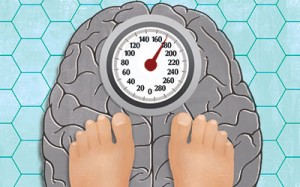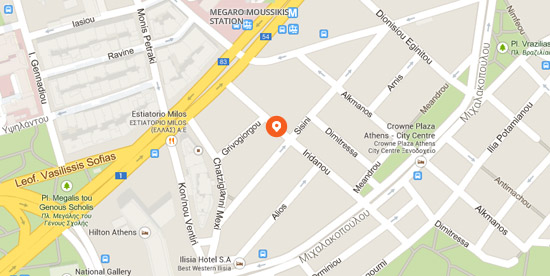Thin… memory (and attention)
 Those who followed a diet to lose weight for a few months know it. Weight loss slows down over the course of time. Also, it is not uncommon that weight lost is regained. The reason is obvious; complying to a specific diet in order to lose weight can be strenuous. Mental focus fluctuates and so does body weight. This fact leaves us wandering is there a way or a method to lose weight, and keep it down, while avoiding the wearisome task of sticking to a specific amount of calories every day.
Those who followed a diet to lose weight for a few months know it. Weight loss slows down over the course of time. Also, it is not uncommon that weight lost is regained. The reason is obvious; complying to a specific diet in order to lose weight can be strenuous. Mental focus fluctuates and so does body weight. This fact leaves us wandering is there a way or a method to lose weight, and keep it down, while avoiding the wearisome task of sticking to a specific amount of calories every day.
More specifically can memory and attention help us loose and maintain a healthy body weight? And if so to what degree is that true? Will we eat less if we raise our awareness about what and how much we eat? The data shows that being attentive while we eat and remembering what we ate affects our appetite and the quantity we consume. It follows therefore that by enhancing attention and memory we aid the weight loss effort and avoid the troubles of calorie monitoring. Below we list four principles which will help you establish a behaviour, based on attentive eating and food intake memory, in order to constraint food consumption.
Avoid distractions while eating
We often hear people say we shouldn’t eat in front of the TV. Conventional wisdom has it that by eating and watching we get distracted and eat more without realizing it. In other words distractions and decreased awareness are believed to affect our immediate consumption of food. That may not always be true since portions can sometimes be determined by someone else (e.g. delivery).What we came to observe is that attentive eating also affects later food consumption. That is, non attentive eating will lead you to eat more in your next meal as well. By avoiding distractions we strengthen later memory of food input and we adjust our next meal to restraint the calorie absorption.
It is worth noting that eating with company may also be considered a distraction. Simultaneously it is also thought conducive to maintaining healthy eating habits and we probably shouldn’t advice people against it. Avoiding other diversions like TV though is helpful.
 Remember what you have already eaten before your next meal
Remember what you have already eaten before your next meal
When preparing a meal we usually try and remember what we previously ate. If our memory is lacking, we might underestimate the quantity consumed and try to complement it by eating more. By citing our earlier eating we may moderate our prospective one. Implementing methods to achieve that may not always be as straightforward; and there is a need for devising user-friendly ways that people may adopt and find helpful.
Strengthen the memory of what you ate
You should find ways to keep in your mind the food or foods you had for longer. You may do this by using visual reminders but that is only one method, and you are free to come up with your own. We reinforce our power of recall to moderate our food intake and lose weight or keep it at a specific level.
Be aware of what you eat
This can be viewed as a form of recapping what you ate immediately after finishing a meal. It will confirm (or not) your idea of what you ate and will jog your memory later on when you will be deciding about the size of your next meal. Both this principle and the one above may require more sophisticated techniques or the help of an expert.
Reference
Robinson E, Aveyard P, Daley A, Jolly K, Lewis A, Lycett D, Higgs S, Eating attentively: a systematic review and meta-analysis of the effect of food intake memory and awareness on eating, American Journal of Clinical Nutrition, 2013;97:728-42.







